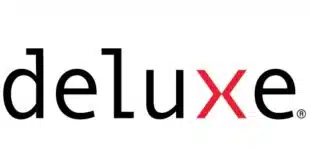The movement by card issuers and government entities to replace check-based benefit payments with prepaid cards entered a new category this week with JPMorgan Chase & Co.'s announcement it will issue a Visa card backed by workers' compensation funds. Unlike unemployment compensation, child-support payments, and other benefits that have backed government-issued prepaid cards so far, workers' comp is paid and administered by insurance companies rather than state agencies. One of the first issuers of the Chase Workers Compensation Card is Van Wert, Ohio-based Central Mutual Insurance Co., which expects to issue the card to claimants receiving what it calls repetitive payments. JPMorgan, which acts as both issuer and transaction processor for its benefit-funded prepaid cards, will not say how many cards it expects to issue or reveal how many insurers have signed up to co-issue them. “JPMorgan does see great opportunity for this offering as businesses increasingly move from paper to electronic payment solutions,” says a spokesman for the bank in an e-mail message to Digital Transactions News. The bank, he adds, sees “great interest” in the product “among its insurance clients.” Tim Sloane, director of the prepaid advisory service at Maynard, Mass.-based Mercator Advisory Group Inc., says the new workers' comp card is most similar to the unemployment-benefits cards now issued by a number of states, including all major-population states except California. Some $2.8 billion in funds were distributed through these cards last year, says Sloane, up 115% from 2006. The increase was so big, he says, because the state of New York began issuing the cards. While he doesn't yet have a projection for worker's comp cards, Sloane says there are a number of reasons they may prove popular with insurers, including savings on postage, check printing, and lost and returned checks, particularly in cases of long-term disability. The bank, meanwhile, earns interchange income on each transaction. The cards can be used at ATMs and at any point of sale that accepts Visa debit cards. They may also be used to pay bills online and allow cardholders to avoid check-cashing fees. Cardholders can check balances online or by phone. “Having the ability to provide an additional payment option to our claimants provides us with a competitive market advantage and enables us to streamline our claims-paying process,” said Thad Eikenbary, assistant vice president and treasurer for Central Mutual, in a statement. Still, Sloane cautions that JPMorgan and other banks looking to issue workers' comp cards may find insurance companies more difficult to work with than state agencies. While states prefer to outsource all or most administrative functions to the bank, he says, insurers “consider themselves experts in managing cash and will have more requirements, leaving them with tighter control.” That need for control, he says, “will raise the bar for anyone that wants to go after [the workers' comp market].”
Check Also
Mastercard Looks to Support Stablecoins in a Deal With Wallet Provider MoonPay
The big card networks have worked for several years to exploit the growing business of …





